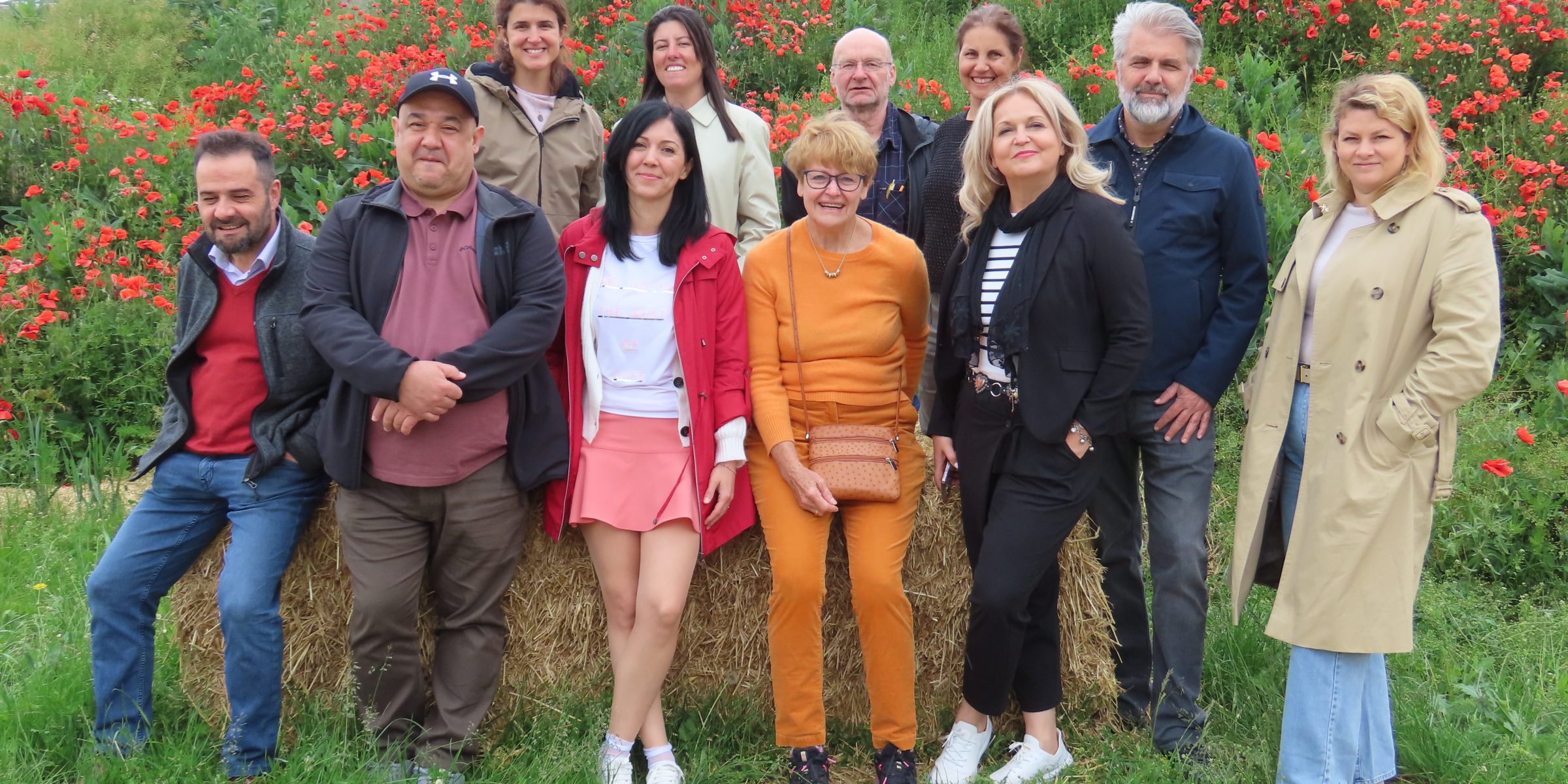The first transnational meeting of the SOFAR project took place between 27th and 30th May in the Bavarian region of Germany, specifically in the districts of Ansbach and Würzburg.
Organised by Viktoria Lofner-Meir from the Bavarian Social Farming Union, the meeting was also supported by Alexander Krauss from SoWiBeFo. Representing the project coordinator, Gazi University, were Prof. Dr. Güçlü Yavuzcan, Hande Sahin, and Prof. Dr. Haşim Özüdoğru from HBV University. The Slovenian partner, Pribinovina, was represented by its founders Lili and Goran Miloševič, along with Sanja Zelko, while the Portuguese partners were represented by Iolanda Valente and Rita Ataíde (BIPP – SEMEAR) and Camila Rodrigues (Mulheres à Obra).
The meeting included visits to farms with significant social farming projects and work sessions to discuss practical issues related to the project’s implementation. These sessions covered an overview of the literature analysis, good practices identified in each country, results of interviews with relevant stakeholders and social farmers, country reports previously prepared by the partners, the Dissemination Plan, and the Quality Assurance Plan.
The partners agreed on further steps, including conducting meetings with national advisory boards and completing a Synthesis Report, Policy Recommendations, and Social Agripreneurship Descriptors. These efforts will culminate in a matrix highlighting the most crucial but least developed competencies for social farming, which will guide the training activities.
The visits included an integrative kindergarten on a farm, „Buch am Wald“ in Lauterbacher; Kerstin Scherer’s Event and Time Out farm, „Jakobshof“ in Geißlingen; „Derleth’s farm“ in Salz, which employs disabled workers; and the „Bavarian Competence Center for Wine and Gardening“ in Thüngersheim, where Dr. Daniel Hessdörfer discussed emerging challenges in agriculture, such as climate change, technology, and innovation.
The visits were very informative and showcased an interesting approach to female social agripreneurship, where entrepreneurial initiatives involve a collective effort uniting women farmers, their families, local communities, social organisations, and regional authorities that support and recognise the importance of social farming.
This approach offers a refreshing alternative to the conventional view of entrepreneurship as an individual endeavour dependent solely on personal effort and merit. It underscores the importance of community and local development achieved through the cooperation of all stakeholders for the common good.
Another notable aspect highlighted by the visits was the role of social farming in diversifying income sources. The primary farming activities are supplemented by social farming projects, which provide additional income to families while incorporating a social responsibility dimension into their businesses. These farms become providers of social services in their communities, enriching the local support network for the most vulnerable, including people with disabilities, children, and the elderly.

